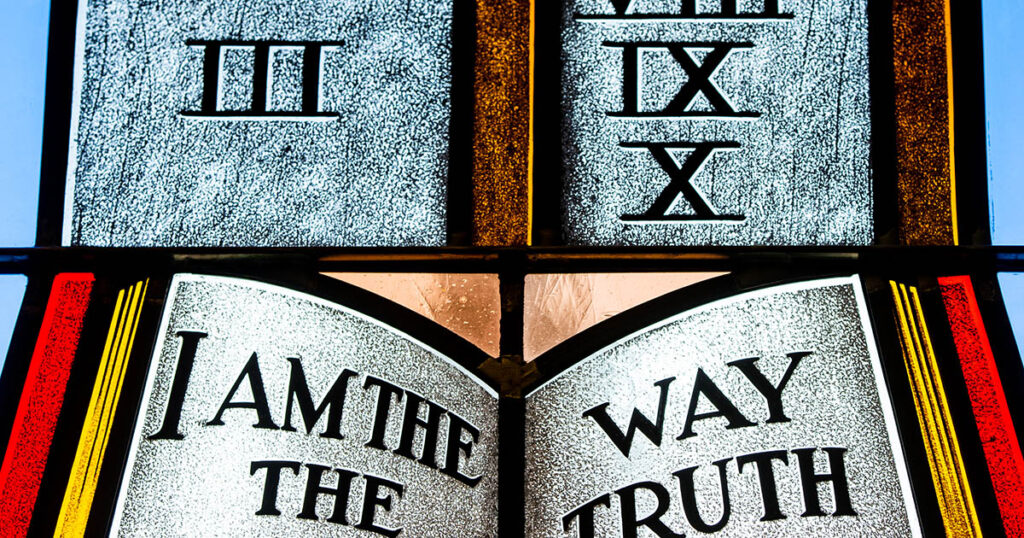The nations are raging, the peoples are plotting and the rulers are taking counsel together. Hostility against Christianity is intensifying. Psalm 2 explains why and tells us what God is doing about it.
David asked the perennial question:
Why do the nations rage
and the peoples plot in vain?The kings of the earth set themselves,
Psalm 2:1–2
and the rulers take counsel together,
against the Lord and against his Anointed.
The political and cultural elite are angry at God, at Christ and at God’s people. They say,
“Let us burst their bonds apart
Psalm 2:3
and cast away their cords from us.”
They want to break out of the “bonds” that God has bound them with, to throw off the “cords” that restrict them. God puts limits on their behavior. Kings and nations, rulers and peoples, don’t want limits, so they strike out against God.
The first use of the Law is as a “curb.” It puts external constraints on what sinful people do, not making us righteous, but — by the force of conscience, shame and fear of consequences — holding us back from our worst impulses. Without that moral restraint, society of any kind — fallen individuals banding together in communities — would be impossible.
Nations and the people who comprise them naturally resent these constraints. But some people, especially those of power and influence, in some eras, such as today, want to cast off all restraints, including those that God has placed on us for our protection and our good. They do not want limits on their sexual passions. They believe they have the right to mistreat people. They seek to construct reality according to their desires. Above all, they do not want anyone telling them what to do, including God. So, they strike out against Him and His church.
God’s response is also simple:
He who sits in the heavens laughs;
Psalm 2:4
the Lord holds them in derision.
The spectacle of mere mortals defying God — rejecting His creation out of a desire to create their own realities, thinking they can free themselves from God’s restrictions — is pathetic and ludicrous.
Every human king will die. Every ruler will lose control. All nations will pass away. All peoples will fade into history. Nothing they create will last. Nothing they achieve will satisfy them. They think they can break God’s Law, but God’s Law will break them.
They will find this out now, in history and in eternity. God “will speak to them in his wrath, and terrify them in his fury.” Notice, though, what God will say when He speaks, what His Word will proclaim:
“As for me, I have set my King
Psalm 2:6–7
on Zion, my holy hill.”
I will tell of the decree:
The Lord said to me, “You are my Son;
today I have begotten you.”
God promises judgment, but He also promises Christ. As happens so often in the Psalms, the proclamation of the psalmist David, carried along by the Holy Spirit, points toward the Son of David, who is also the Son of God.
The nations and the creation itself are His. The time is coming when He will shatter human political, cultural and personal beliefs as completely as taking a crowbar to a ceramic vase:
Ask of me, and I will make the nations your heritage,
Psalm 2:8–9
and the ends of the earth your possession.
You shall break them with a rod of iron
and dash them in pieces like a potter’s vessel.
This image mirrors the fragments of pottery that are the remnants of the Assyrian, Babylonian and Roman empires.
This Psalm gives harsh warning to earthly rulers, but it also gives them hope. It is possible for them to serve God by fearing Him instead of exalting themselves and by obeying His Law instead of imposing their own will. And they too can rejoice in the Son of God. These defiant sinners, once broken, can know the joy of the Gospel:
Now therefore, O kings, be wise;
Psalm 2:10–11
be warned, O rulers of the earth.
Serve the Lord with fear,
and rejoice with trembling.
Christ, to be sure, is a stumbling block, a stone of offense, as is His church (1 Peter 2). Those who rebel against Him will find Him terrifying, but those who know His love will find Him a refuge from all terror:
Kiss the Son,
Psalm 2:12
lest he be angry, and you perish in the way,
for his wrath is quickly kindled.
Blessed are all who take refuge in him.



Excellent article. Thank you.